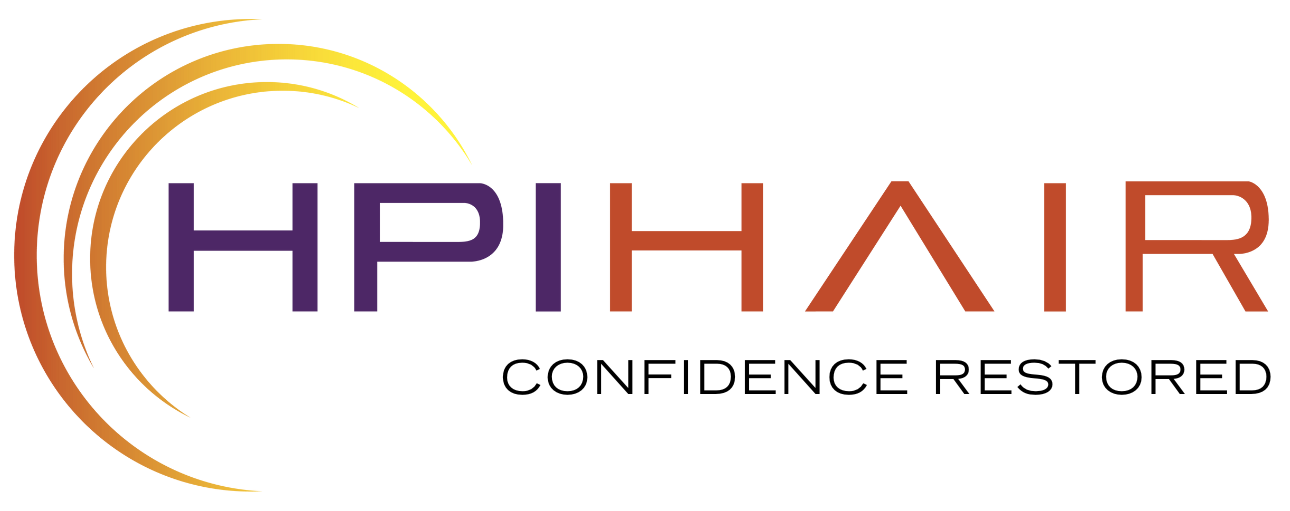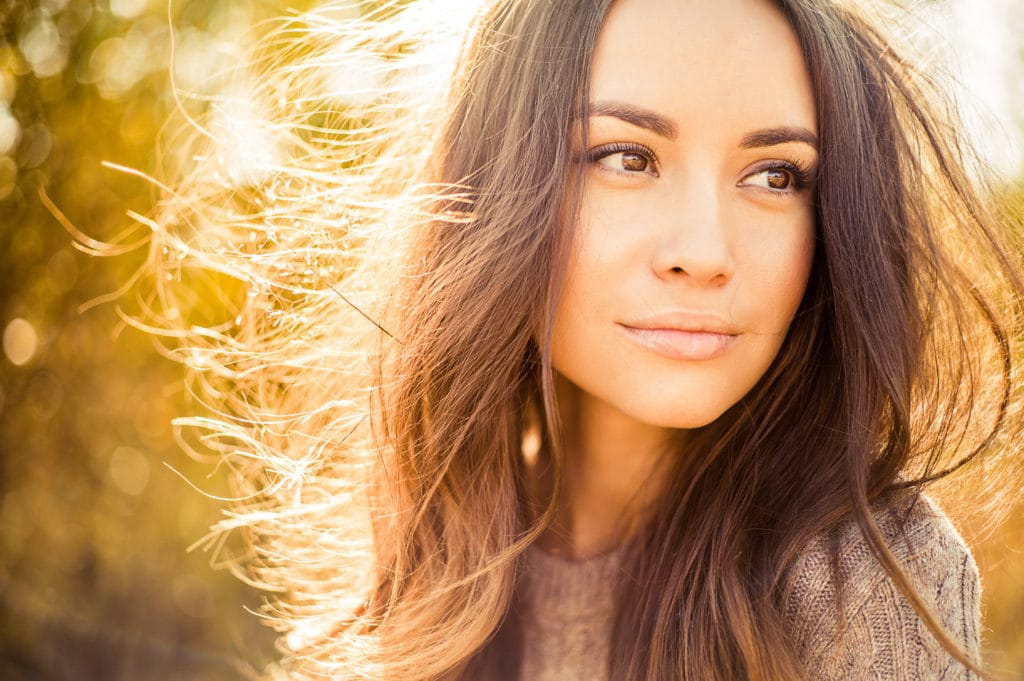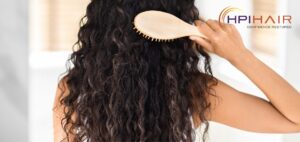Powerful foods that prevent seasonal hair loss
Is hair loss normal?
Seasonal shedding, like seasonal allergies (or even skin problems), happens when a change in temperature stresses the scalp and follicles, causing strands to come out. Of course, there is more to it than that. Get the real scoop on seasonal hair loss from the industry’s best Trichologist, Kimberly Vaughn with HPIHair .
“Losing 80 – 100 hairs every day can be a reason to take notice if this continues on a regular basis” says Kimberly. You may notice an increase in shedding at various periods of the year, particularly in the late autumn months. Trichologists call it seasonal shedding. Kimberly notes that seasonal shedding is usually not a reason for worry if your hair and scalp have been cared for properly. If your health and hormones are also regulated, your hair should slow the aggressive seasonal shed in less than a month. With time, shedding should return to typical daily levels, and normal hair growth will resume.
When should you worry?
These variables include excessive or consistent stress, medicines you may be taking, internal factors like hormones (menopause and pregnancy), thyroid function, and poor hair and scalp care. Your hair may heal and revert to its regular growth cycle in certain instances. In other instances, hair may start to weaken, grow thinner, or become dormant. Without a doubt, excessive hair loss is extremely distressing, and although it is generally transitory, it can cause a continuous cycle of hair loss if not properly identified and managed. Kimberly suggests undergoing a Single Hair Analysis (SHA) test to determine underlying reasons leading to the root of the hair loss problem.
Hair Loss Diet, anyone?
We all know that nutrition plays an important role in the health of our hair. We interviewed Nataliia Sanzo, a Registered Dietitian Nutritionist, and Nashville Thyroid Expert®️ to learn about the top foods that stop and prevent seasonal shedding and may promote a fuller head of hair.
“When it comes to preventing and treating hair loss, the first thing we need to address is nutritional deficiencies,” says Nataliia. Eating the right foods can lead to a fuller, healthier head of hair.
Nataliia summarized the variety of nutrients that promote hair growth:
Let’s look at the best types of food for hair loss.
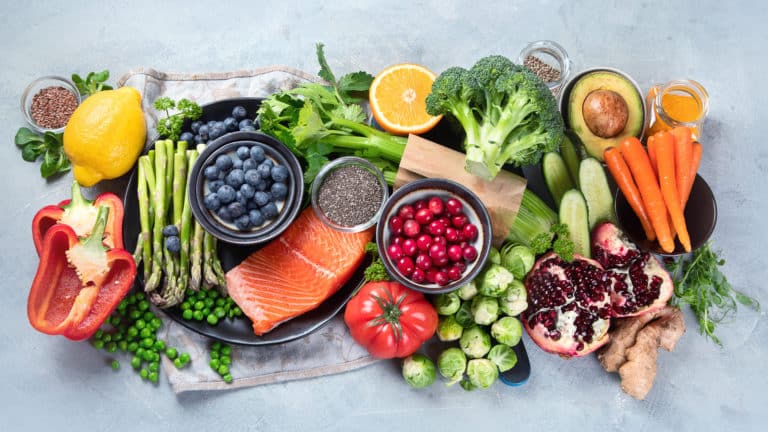
Almonds and almond butter
Almond butter includes a range of elements that have been related to hair health, including protein, healthy fats, and certain vitamins. Researchers claim that the vitamin E concentration in nuts is especially beneficial for keeping your hair strong and glossy.
Salmon
Salmon is high in omega-3 fatty acids, which offer a wide range of health advantages. Omega-3 fatty acids have anti-inflammatory properties. If you have inflammation that is causing hair loss, this nutrient may help stop seasonal hair loss. Walnuts, chia seeds, and flax seeds are all excellent sources of omega-3s.
Spinach
Spinach is rich in nutrients and minerals that are good for both your hair and your general health. It’s essential to make sure you don’t have a deficiency in anything in your diet that may be causing hair loss. To make sure you don’t have any deficiencies, I like to run a variety of tests to check protein levels, iron, iron storage, vitamin D, amongst others. Spinach, in addition to being rich in iron and magnesium, may aid in the production of sebum in your hair.
Eggs
Eggs are high in protein and important minerals, including choline and vitamins A, D, and B12, all of which are beneficial to hair health. Lutein and zeaxanthin, two carotenoids present in eggs, also have a role in cellular health, particularly in the eyes, skin, and hair. Eggs also include ten micrograms of biotin, a B vitamin that may aid hair growth and strengthen nails. “Almonds, avocados, and salmon are other excellent sources of biotin,” Nataliia adds.
Oatmeal
Oats are high in zinc, fiber, iron, omega-3, and polyunsaturated fatty acids (PUFAs), all of which help to promote hair development and thickening.
Nataliia suggests topping oatmeal with some chia seeds to make your daily cup of oats even more hair-boosting. This nutritional powerhouse is a complete protein, with 20% more protein than soybeans, and may aid in the growth of long, luscious hair.
Lentils
Lentils are high in folic acid, which aids in the formation of red blood cells in the body. Your organs, including your skin and scalp, get oxygen from red blood cells, thus maintaining their health and vitality.
Oysters
Nataliia notes that it is possible that you’re not receiving enough zinc in your diet if your hair is thinning or falling out entirely. Fortunately, research shows that hair loss caused by zinc deficiency may be restored simply by increasing zinc intake.
Blueberries
According to a study published in the International Journal of Cosmetic Science, oxidative stress has been related to hair loss and unhealthy scalps. Therefore, it’s essential to include antioxidants in your diet to keep your scalp and hair happy. Blueberries, in particular, are high in antioxidants such as vitamin B and proanthocyanins.
Barley
Barley, like almond butter, is high in vitamin E. It may aid in hair development; therefore, consuming foods rich in this vitamin is always a wise choice if you’re seeking to supplement your diet with additional foods for hair growth.
Halibut
Halibut has a lot of magnesium, which helps the body keep its insulin levels in check. Diabetes has also been related to hair loss, so keeping your insulin levels under control is critical for a variety of reasons.
Shiitake mushrooms
Copper is required for the strength of keratin fibers. According to multiple researches, the trace elements may also help hair retain its original color and prevent graying. A cup of cooked shiitake mushrooms has 1,287 micrograms of the mineral, which is 143 percent of your daily recommended value. Copper is also abundant in seaweed and sesame seeds.
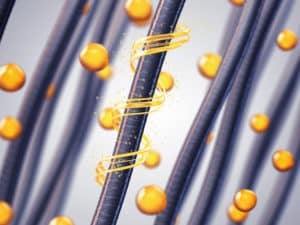
Finally, Nataliia emphasized the importance of the consumption of high-protein foods, which aid in the growth of healthy, strong hair. Hair follicles are the tube-shaped passageways in the scalp and skin where hair develops and grows. A large portion of their structure is comprised of protein, which is also an important component in the development of healthy hair cells. In order to increase your body’s protein levels, try including more eggs or fish in your diet.
Nataliia Sanzo is a Registered Dietitian, Nashville Thyroid Expert®️, and Certified Health and Wellness Coach. Nataliia has been helping people since 2015 address their thyroid disorders, gut and liver health, food sensitivities, and intolerances. She will help you to understand the value of lifestyle interventions and functional medicine in restoring health.
HPIHair is excited to welcome Nataliia as our Staff Dietitian .
Written by Nataliia Sanzo, RDN
